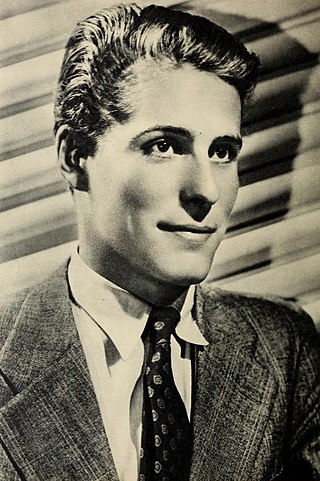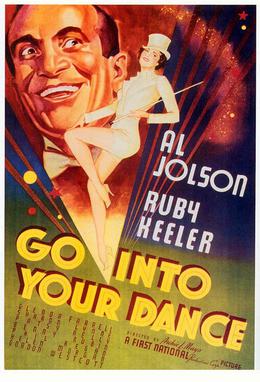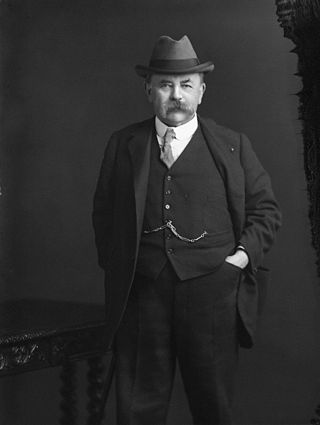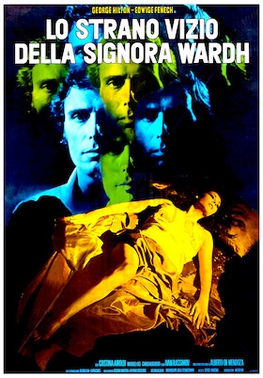
Alan Alexander Milne was an English writer best known for his books about the teddy bear Winnie-the-Pooh, as well as for children's poetry. Milne was primarily a playwright before the huge success of Winnie-the-Pooh overshadowed all his previous work. Milne served in both World Wars, as a lieutenant in the Royal Warwickshire Regiment in the First World War and as a captain in the Home Guard in the Second World War.

Alibi is a 1929 American pre-Code crime film directed by Roland West. The screenplay was written by West and C. Gardner Sullivan, who adapted the 1927 Broadway stage play, Nightstick, written by Elaine Sterne Carrington, J.C. Nugent, Elliott Nugent, and John Wray.

The Mousetrap is a murder mystery play by Agatha Christie. The Mousetrap opened in London's West End in 1952 and ran continuously until 16 March 2020, when the stage performances had to be temporarily discontinued during the COVID-19 pandemic. It then re-opened on 17 May 2021. The longest-running West End show, it has by far the longest run of any play in the world, with its 28,915th performance having taken place as of November 2022. Attendees at St Martin's Theatre often get their photo taken beside the wooden counter in the theatre foyer. As of 2022 the play has been seen by 10 million people in London.

Nigel Patrick was an English actor and stage director born into a theatrical family.

Robert Douglas Finlayson, known professionally as Robert Douglas, was an English stage and film actor, a television director and producer.

Marguerite Churchill was an American stage and film actress whose career lasted 30 years, from 1922 to 1952. She was John Wayne's first leading lady, in The Big Trail (1930).

Gambling Lady is a 1934 American pre-Code romantic drama film directed by Archie Mayo, and starring Barbara Stanwyck, Joel McCrea and Pat O'Brien.

John Grant Mitchell Jr. was an American actor. He appeared on Broadway from 1902 to 1939 and appeared in more than 125 films between 1930 and 1948.

The Silent Passenger is a British black-and-white mystery film produced in 1935 at Ealing Studios, London. It is based on an original story written by Dorothy L. Sayers specifically for the screen. Her amateur sleuth, Lord Peter Wimsey, was portrayed as a somewhat eccentric comical aristocrat who solved murders. As of 2014, the film is available on DVD.

Life Begins is a 1932 American pre-Code drama film starring Loretta Young, Eric Linden, Aline MacMahon, and Glenda Farrell. The film was adapted from the 1932 play of the same name by Mary M. Axelson. It was released by Warner Bros. on September 10, 1932. The film was praised for its honest portrayal of a maternity ward.

John Justin was a British stage and film actor.

Go into Your Dance is a 1935 American musical drama film starring Al Jolson, Ruby Keeler, and Glenda Farrell. The film was directed by Archie Mayo and is based on the novel of the same name by Bradford Ropes. It was released by Warner Bros. on April 20, 1935. An irresponsible Broadway star gets mixed up with gambling and gangsters.

Harry J. Beresford was an English-born actor on the American stage and in motion pictures. He used the professional name Harry J. Morgan early in his career.

Go-Get-'Em, Haines is a 1936 American mystery film directed by Sam Newfield. It was William Boyd's last non-Hopalong Cassidy role.
Tyrell Davis (1902–1970) was a British film actor, Cambridge educated, who appeared on the West End and Broadway stage, as well as in British and American films.

The White Sheik, also known as King's Mate, is a 1928 British silent adventure film directed by Harley Knoles and starring Lillian Hall-Davis, Jameson Thomas and Warwick Ward. It was based on the novel King's Mate by Rosita Forbes.
The Fourth Wall is a mystery play by the British writer A.A. Milne. It was first staged at the Haymarket Theatre in 1928. Under the name, The Perfect Alibi, it was produced at the Charles Hopkins Theatre on Broadway from November 1928 through July 1929.

Louis Napoleon Parker was an English dramatist, composer and translator. Parker wrote many plays, developing a reputation for historical works. His 1911 play Disraeli is one of his best known, written as a vehicle for the actor George Arliss who later won an Academy Award for his performance in the 1929 film adaptation, itself based on his earlier 1921 silent film version.

The Strange Vice of Mrs. Wardh is a 1971 giallo mystery film directed by Sergio Martino, and starring Edwige Fenech, George Hilton, Ivan Rassimov, and Alberto de Mendoza. Its plot follows the wife of a diplomat who finds herself being stalked by her former abusive lover in Vienna.

Luxury Liner is a 1933 American pre-Code drama film directed by Lothar Mendes and starring George Brent, Zita Johann and Vivienne Osborne. It was based on a 1932 novel by Gina Kaus, and made by Paramount Pictures. Mendes worked on a number of films for Paramount during the era. Shortly after making the film, he went to Britain where he directed his most celebrated film Jew Süss.


















